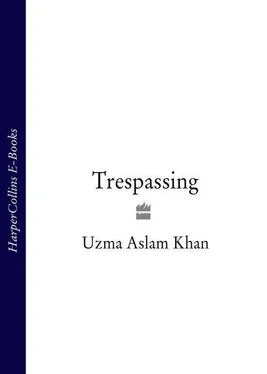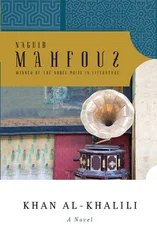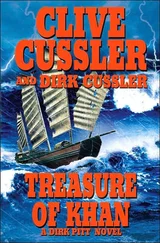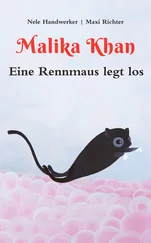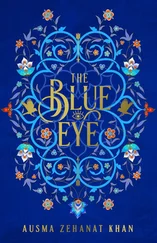Shan gathered the three pins and walked up to the umpire.
It was the girl who took the pins from him. She smiled. ‘Thank you.’
Shan chewed his lips timidly. He addressed the father, ‘I’ve brought some things, Mansoor Sahib.’
Mansoor Sahib looked at Salaamat. ‘And this is?’
‘Oh,’ said Shan vaguely. ‘My eldest brother. But,’ he quickly added, ‘he won’t be staying here.’
Salaamat held his head up high. The sahib seemed to be waiting for his greeting but Salaamat said nothing.
All four entered the gate. They walked up a long, swirling driveway shaded with jamun and peepul trees. A sweet smell infiltrated his nose. Yellow wings fluttered across his vision. Up ahead and to his right, in an enormous mulberry tree, sat a pair of blossom-headed parakeets, nibbling at each other’s beaks. Finally, they reached a mass of round rocks, from which toppled a miniature waterfall. Salaamat sucked in his breath. This was exactly the kind of picture painted on the ceilings and corners of almost every bus he’d seen or worked on. No, it was better. The picture stretched on, till they came at last to a clearing bordered by laburnum trees.
In the center sat a woman at a glass table. ‘Just in time,’ she looked up. Her gaunt face was framed with short hair arranged in a copious swoop to the side. Salaamat thought even Shan prettier.
‘I won, Ama,’ said the girl.
‘I know,’ the mother laughed. ‘I saw Hassan storm away.’
‘He always loses,’ the girl rejoiced.
Her father sat down. ‘Maybe you should let him win from time to time.’
‘Don’t you dare!’ her mother intercepted. ‘What he needs is a wife who can bowl better than him.’ She and her husband exchanged glances, while the girl, still standing, watched keenly, her wide eyes darting from face to face, her smile fading.
Then the woman turned to Shan. With a curious, bemused air, she asked of Salaamat, ‘And this is?’
‘My brother.’ Shan reddened again.
Standing with both legs apart and hands behind his back, Salaamat still said nothing.
‘Perhaps he’s in the army,’ Mr Mansoor offered. ‘Everybody seems to be these days. Should we eat?’
SEPTEMBER 1990
It was a fair question, thought Daanish. Does the United States want a war? But he was learning which questions could not be asked.
Wayne leaned back into a swivel chair. A sign in his office read: Trust your choices. Everything is possible. There was an identical one in the classroom where he lectured. Tilting his chin he regarded Daanish from down the length of a thin nose. ‘I merely suggested you explore different avenues. Good journalism is snappy and digestible. You’re an amateur. Your writing style is ponderous and, well, pretty emotional.’
Daanish studied the page he’d written in the journal students were required to keep. Each week, class discussion revolved around the most popular subject, with tips on how to gather more information and how to beef up its selling points with eyewitness-type phrases and expressions. ‘Interviewing witnesses,’ Wayne loved to say, ‘is key. Make your audience be them. Make ‘em gasp, make ‘em drool.’ The last class discussion was on the removal of various vitamins from store shelves. The mass media reported that the decision had resulted in more protest letters to the government than on any other issue in history. In class, students voiced their outrage on the infringement of the public’s right to choose their product. Small groups compared the various articles on the ‘crisis’, and a consensus was drawn on which report best served the interests of the oppressed people. Some articles interviewed those who no longer had access to their favorite vitamin. It made readers gasp. It made them drool. It made the students want to write like that.
The week before, the topic had been a certain museum’s refusal to exhibit nudes. ‘Censorship,’ Wayne had said, ‘is our worst enemy. Let’s not forget that it’s almost the two-hundredth anniversary of the First Amendment to the Constitution, the right to free speech. Today we’ll examine the many ways the media has asserted it. But first,’ he raised a finger and his voice began to fill the auditorium impressively. His lower lip plunged into the upper in a passionate pucker. He bounced. ‘Remember that as guardians of the press, as those who’ll go forward into the world with four years of meticulous training, as those who’ll be eyewitnesses of the vast turbulence around us, it’s our role to speak the objective truth to those who stay behind and depend on us!’
It had been six weeks since Iraq invaded Kuwait. Not one class discussion had addressed the attack, let alone its reporting. No one mentioned the international sanctions against Iraq or the freezing of its assets. Without oil exports, the nation was unable to import food. Daanish had found nothing in the US media about the effects of those sanctions nor about the peace settlements he knew, through the international press, were ongoing. Americans had been told little besides the fact that 40,000 US troops had been sent to Saudi Arabia. They’d been told the deployment was defensive, even though it was as large as the one in Vietnam.
Daanish spent hours in the library, searching and delving through the less influential American and foreign papers. What he found led to the writing of the following entry in his journal:
After eight years of fighting Iran, Iraq needed to rebuild its economy. It needed oil money. However, the day after the Iran-Iraq cease-fire, Kuwait began increasing oil production, in violation of OPEC rules. Oil prices were cut in half. By the following year, Kuwait was producing more than two million barrels of oil per day, much more than its OPEC quota. To make things worse, it began extracting this oil from an oilfield on the disputed Iraq-Kuwait border, a border created by the British. It did this with US approval. After all, the US supplied the technology. Some lesser-known newspapers, at great personal risk, are reporting that during the Iran-Iraq war, Kuwait was actually drilling the oil on Iraq’s side of the border. Since Kuwait was one of the biggest Iraqi creditors during the war (an amount exceeding thirty billion dollars), this could mean it loaned Iraq its own product! Now, after the war, it has been demanding the debt be paid, while simultaneously increasing production.
These are events not mentioned in the more popular newspapers and magazines, but in light of Iraq’s invasion, I believe they ought to be. All angles of the situation ought to be examined, all parties ought to be included in the debate and the debate ought to be made available to the public. But why is the public not being told what the UN, US, Iraq, Kuwait and other relevant Middle Eastern nations are discussing? Does the US have other plans?
Perhaps. We need to also examine how the American government dealt with Iraq during the Iran-Iraq crisis, when it was taken off the ‘terrorist’ list. Compare this with what happened immediately after the cease-fire. Practically overnight, it was again declared a threat in a document with a name worth noting, War Plan 1002–90. Why the about-face? It was the same Iraq, the one that had been funded and armed by the US during the war. Mirroring the government’s shift, the US media also began to portray Iraq differently. It was no longer an ally. It had become the enemy.
The American public has been told that the 40,000 US troops currently stationed in the Saudi desert are there to protect Saudi Arabia from the 120,000 Iraqi troops moving into it from Kuwait. Why haven’t we been shown these Iraqi troops?
Читать дальше
Конец ознакомительного отрывка
Купить книгу
